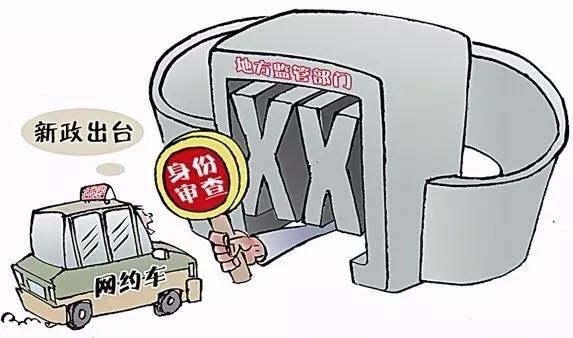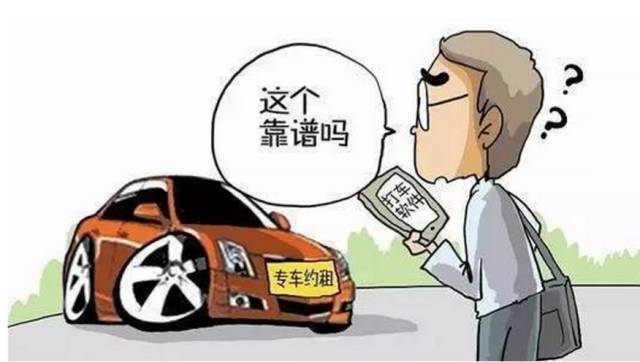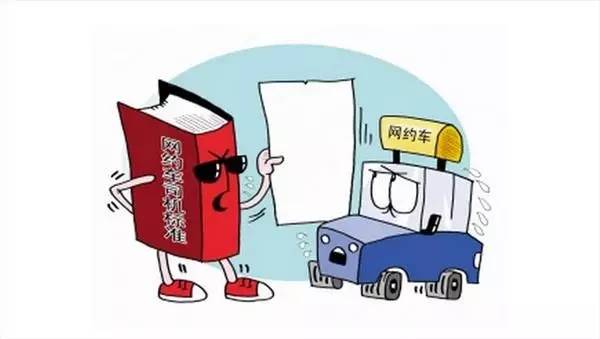Strict access to ensure the sustainable development of online car-hailing
After two months, Shanghai’s local rules for online car-hailing have finally been unveiled.
This afternoon, Beijing, Shanghai, Chongqing, Guangzhou and Shenzhen each issued relevant regulations, setting clear licensing conditions for online car-hailing platform companies, vehicles, and drivers, and making the next step of online car-hailing operations "legal."
The management approach of online car-hailing has received a high degree of attention and involves many interests. It is necessary to take into account both the healthy development of the industry and the actual conditions of Shanghai, a megacity. It is not easy to issue policies.
As the current "fashionable" way of travel, the "name correction" of online car-hailing has become the general trend. With the implementation of local policies, in the future, eligible online car-hailing cars can finally be justifiably driven to the streets, and many special car drivers will also bid farewell to the "underground" state. The development of the industry has taken a solid step.

But "justifying" the name of online car-hailing is by no means allowing its boundless free expansion, let alone making it a reckless "blind spot of the rule of law". While recognizing the rationality of the existence of online car-hailing itself, the introduction of relevant systems is to effectively solve the problems exposed in the current development of this industry.
Over the past year, the massive expansion has resulted in uneven quality of vehicles and personnel, and the platform companies’ review of vehicles has become useless. These have become "stubborn diseases", resulting in frequent cases of infringement of consumer rights and interests.
In April this year, a "female college student called a suspicious car" was forwarded and spread on major new media platforms. The special car called by the party through the taxi software did not match the car number displayed on the software at all; in March this year, the Municipal Traffic Law Enforcement Corps seized the owner of a special car using 3 sets of vehicle number plates at the same time during the law enforcement process… and the traffic accidents, public security incidents, and criminal cases caused by online car-hailing are also increasing, and all parties are calling for "the special car should be managed".

In the Shanghai plan, the guiding ideology of legal management, green environmental protection, safe operation, fair competition, and protection of consumer rights and interests is basically fully implemented, and "targeted" is reflected everywhere. For example, on the entry threshold, Shanghai stipulates that the vehicles and drivers of online car-hailing in Shanghai must be "Shanghai nationality", which is mainly because, first, the city’s policy is a requirement of the national policy. After all, the city is the main body of online car-hailing management; second, the double "Shanghai nationality" precisely follows the law of the sharing economy, which can be used to confirm personal idle assets from the information end for social sharing. For example, on the vehicle access threshold, the "National Five" emission standard is fully implemented. For example, in terms of company management, Shanghai clearly requires online ride-hailing companies to take measures such as suspending business and canceling platform registration for major traffic safety accidents caused by drivers, infringing on the interests of passengers, and disrupting operational order…
The ride-hailing industry has gone through the brutal growth in the early stage and is bathed in the current burgeoning capital expansion. Facts have proved that platform companies and practitioners have fully enjoyed the high benefits brought by the new business model, but have not fully assumed the corresponding social responsibilities. An industry that grows under unfair competition and breeds security risks should never become a pride under the "Internet +" wave, let alone a standardized template for the "sharing economy".
Regulating the operation of online car-hailing is to let companies and practitioners take up their due responsibilities. The new regulations firmly grasp the key point of "employment threshold", control the safety valve from the qualification of personnel and vehicles, and strictly require the possession of certificates. The original intention is to consider the safety of the general public’s travel. To make online car-hailing, like taxis, have no blind spots for access and no blind spots for service standards.

The government is duty-bound to the safety bottom line. Instead of covering the bottom line after the problem occurs, it is better to make effective regulation in the specification, use the invisible hand to create an orderly industry ecology, and use a certain degree of "income" to bring safer and more convenient "release". Only when all interests are checked and balanced and know how to self-restrain, will the industry usher in a broader space.
The new rules are not short of strong restrictions, which is "income", but they are also humane in some details, such as requiring platform companies to sign employment contracts or agreements with drivers, and not refusing to allow a ride-hailing car to register multiple platforms at the same time to operate. These "liberalizing" measures are in the best interests of ride-hailing practitioners and strive to create more well-being for them.
Many citizens are concerned about whether the strict management of online car-hailing will cause new "taxi-hailing difficulties"? Indeed, regulating online car-hailing will inevitably lead to a reduction in the supply side in a short period of time, but this is a "short-term pain". The disorderly development of the industry, the recurrence of safety accidents, and the ultimate destruction of credibility will be a "long pain".
It is not realistic to blindly solve the problem of "travel difficulties" by a large number of social vehicles "entering the market". "Tightening" online car-hailing at the same time forces the taxi industry to self-subvert and completely transform, and encourages "ride-hailing" compliance to legally go on the road, providing more diverse choices for traveling citizens. This is the greater sense of "release".
Shanghai’s local bylaws are not meant to stifle the vitality of an industry’s booming development, but to put the brakes on the disorder in the "leap forward". The city is willing to tolerate all innovation attempts, but more expect a fair market order. Comrade Wen Jiabao once said that social fairness and justice are more glorious than the sun. For the online car-hailing industry full of Internet genes, we also expect it to go further and better on the new track.